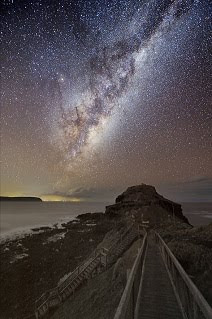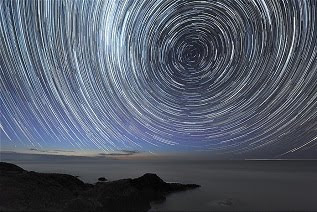Up, Down, Appendices, Postscript.
(Music this week is Barnacle Bill the Sailor of which I assume everyone can hum at least one verse - if not, look it up on YouTube.)

 Robert Kroetsch died recently, which brought the first chapter of What the Crow Said to mind, so I re-read it (here it is), and took a look at his last little book of poems while I was at it - Too Bad: sketches toward a self-portrait, aptly named, and with a cover evidently chosen by some consultant - because what he had to say about fucking bees back in 1978 didn't quite fly, and there was not much to say covering the cover in this last one either.
Robert Kroetsch died recently, which brought the first chapter of What the Crow Said to mind, so I re-read it (here it is), and took a look at his last little book of poems while I was at it - Too Bad: sketches toward a self-portrait, aptly named, and with a cover evidently chosen by some consultant - because what he had to say about fucking bees back in 1978 didn't quite fly, and there was not much to say covering the cover in this last one either.Don't want to speak ill of the dead - he was close, or he was facing in the right direction (as Martin Buber would have us do), or something like that ... sooo close, that first chapter, the closest I have ever seen in this country, closer than our Lennie Cone ... but not quite a cigar, just ... a bit dry ...



 Speaking of consultants ... I actually took part in this ridiculous survey, got roped in by TEA, but it was clearly and firmly in the hands of the equivocators from the get-go.
Speaking of consultants ... I actually took part in this ridiculous survey, got roped in by TEA, but it was clearly and firmly in the hands of the equivocators from the get-go.Four ... What did Perry Mason call them? Exhibits?






Predictable, not as predictable as it could be, but ... predictable.
Not the trajectory of this young woman either. Who knows what that might be? I certainly don't. No. But what is happening in Belo Monte, which somehow also caught her attention. (All of these images come from her Tumblr.)

 All he had to do was tell it like it is.
All he had to do was tell it like it is.For a while it seemed like he might.
Instead he ... whatever ...
 He that we last as Thurn and Taxis knew
He that we last as Thurn and Taxis knewNow recks no lord but the stiletto's Thorn,
And Tacit lies the gold once-knotted horn.
No hallowed skein of stars can ward, I trow,
Who's once been set his tryst with Trystero.
 A verse from Thomas Pynchon's The Crying of Lot 49, 1966, which I would set up to be compared & contrasted with Maritain's "l'armée des étoiles jetées dans le ciel."
A verse from Thomas Pynchon's The Crying of Lot 49, 1966, which I would set up to be compared & contrasted with Maritain's "l'armée des étoiles jetées dans le ciel." These star images from Alex Cherney down in Australia.
These star images from Alex Cherney down in Australia.Lookout! It seems God has hit the flush lever.
And here's Christopher Hume, architecture critic for the Toronto Star - which is about as dark as anyone in Toronto is likely to get over it, or something ...
Até o talo (até o final, no máximo, até o fundo) - to the core.
Be well.
Postscript:

 Sure enough those razor clippings are working - no racoons!
Sure enough those razor clippings are working - no racoons! A report in the Guardian, and a corresponding map - Khartoum is just off this map at the top-right. Google does not show the new South Sudan border which is clearer on the map to the right, and which also shows South Kordufan aka South Kordofan aka Janub Kurdufan etc. state but not the Nuba airstrip at Kauda which the Guardian says has been bombed to inoperability.
A report in the Guardian, and a corresponding map - Khartoum is just off this map at the top-right. Google does not show the new South Sudan border which is clearer on the map to the right, and which also shows South Kordufan aka South Kordofan aka Janub Kurdufan etc. state but not the Nuba airstrip at Kauda which the Guardian says has been bombed to inoperability."Princeton Lyman, U.S. envoy for Sudan, told Margaret Warner this week that the Nuba Mountain region in Southern Kordofan, where Northern forces have moved in and many residents have fled, is not in danger of becoming another Darfur." The US being what it is, this may very well mean the opposite.
Appendices:
1. Animal celebrities and the disappearance of species, Christopher Hume, July 16 2011.
Animal celebrities and the disappearance of species, Christopher Hume, July 16 2011.
As Joseph Stalin might have put it: the death of one animal is a tragedy, the death of millions a statistic.
For several weeks now, the world has been anxiously following the saga of Happy Feet, an off-course emperor penguin that left the Antarctic and somehow ended up in New Zealand, injured but alive.
Since being found, the bird has received emergency surgery, been given a home in the Wellington Zoo, become a candy marketing tool and received sponsorships from a number of local businesses.
Once the lucky avian has recovered, it will be taken to a location from which it can make its way home again. A lot of people would be happy to be so well treated.
Meanwhile, back in the part of the world undiscovered by global media, Happy Feet’s species is under serious threat from climate change. Scientists say they might not survive beyond the end of the century.
Last week, alerted on Twitter, a gaggle of heroic British Columbians rescued four white-sided dolphins that had beached themselves on Vancouver Island. This was just the most recent example; there have been many over the years.
Though some dolphin species are faring better than others, their long-term prospects don’t look good. They are being “harvested,” poisoned, stressed, drowned and displaced around the planet.
Then there are the orphaned bears, lonely elephants, lost deer, marooned ptarmigans, stranded whales, oil-smothered pelicans, wounded raccoons, burnt koalas, finless sharks ... It seems all creatures great and small can expect their 15 minutes in the spotlight.
And let’s not forget the dogs that save their owners from certain death, that trek across continents to return home, and the cats that thwart thieves and sexual predators.
With every passing story we feel a little better, a little closer to the natural world and the animals with whom we not only share the planet but upon whom we depend. These tales warm our hearts or send us into frenzies of indignation.
Though it’s true we humans tend to favour furry and cute over scaly and cold, our emotions are real.
Yet experts warn we are in the midst of the sixth great extinction, and although the numbers vary wildly, species are disappearing faster than evolution can replace them. Similarly, natural resources are being consumed faster than they can be renewed.
Loss of habitat, global warming, pollution and overhunting and overfishing make life difficult, often precarious, for countless species. This isn’t because we don’t care about animals; obviously we do.
Perhaps this contradiction between feelings and actions is a variation of Hannah Arendt’s notion of “the banality of evil.” She coined the phrase in an essay on the notorious Nazi bureaucrat Adolf Eichmann, but the term describes the enormous destruction (evil) perpetrated by ordinary people going about their business, not psychopaths and monsters.
The degradation of the natural world happens not through the acts of a few evil geniuses but the cumulative effect of billions of individual decisions. It’s everyone’s fault — and therefore no one’s.
The fate of a species, a population, an ecosystem, is an abstract concept. By contrast, the plight of a single creature is specific, even personal. Every emperor penguin may be a potential Happy Feet, but only one is an actual animal celebrity.
And as the number of animals declines, the number of animal celebrities grows. They have become a regular feature of our lives, much sought-after by media. Perhaps that has something to do with the need to convince ourselves that we really do care, even though we don’t.
Down




1 comment:
who are you? this blog is amazing, and its layout is perfectly graphic and could lend itself to zine publishing. zruiter@gmail.com
zach Ruiter
Post a Comment